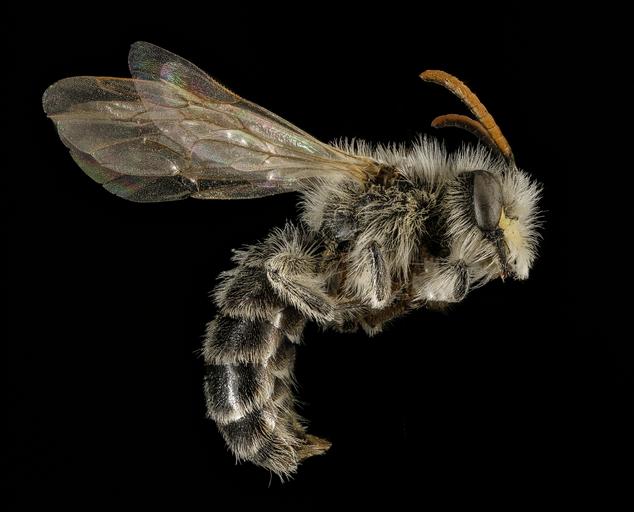MAKE A MEME
View Large Image

| View Original: | Andrena_wellesleyana,_m,_side,_Middlesex_Co,_MA_2016-02-09-11.57.jpg (4752x3840) | |||
| Download: | Original | Medium | Small | Thumb |
| Courtesy of: | www.flickr.com | More Like This | ||
| Keywords: zerene stacker zerenestacker stackshot geological survey geologicalsurvey united states geological survey unitedstatesgeologicalsurvey department of the interior departmentoftheinterior droege biml bee inventory and monitoring laboratory beeinventoryandmonitoringlaboratory bug bugs canon close-up closeup macro insect patuxent wildlife research center patuxentwildliferesearchcenter pwrc usgs dofstacking stacking canon mpe65 canonmpe65 bee bees apoidea hymenoptera pollinator nativebee taxonomy:binomial=andrena wellesleyana taxonomy:binomial=andrenawellesleyana michael veit michaelveit sand sand pit sandpit massachusetts black background animal photo border moth Andrena wellesleyana is one of the many Andrena species. It is also one of a number of species where the males have extensive yellow on their faces while the females are completely black. I the bulk of species both males and females have black faces. I would, I think, like to have a yellow face, more ornamented, but why do some bees in this group have yellow and others not...and what about those handful of species where the females also have yellow? Mysterious. This is a sand loving, willow loving species. It is mostly western in distribution, but then there is a small island of individuals that live just in Southern New England. Interesting. Collected by Michael Veit in the old sand mines of Massachusetts. Photos by Hannah Sutton. ~~~~~~~~~~{{{{{{0}}}}}}~~~~~~~~~~ All photographs are public domain, feel free to download and use as you wish. Photography Information: Canon Mark II 5D, Zerene Stacker, Stackshot Sled, 65mm Canon MP-E 1-5X macro lens, Twin Macro Flash in Styrofoam Cooler, F5.0, ISO 100, Shutter Speed 200 Beauty is truth, truth beauty - that is all Ye know on earth and all ye need to know " Ode on a Grecian Urn" John Keats You can also follow us on Instagram - account = USGSBIML Want some Useful Links to the Techniques We Use? Well now here you go Citizen: Art Photo Book: Bees: An Up-Close Look at Pollinators Around the World www.qbookshop.com/products/216627/9780760347386/Bees.html... Basic USGSBIML set up: www.youtube.com/watch?v=S-_yvIsucOY USGSBIML Photoshopping Technique: Note that we now have added using the burn tool at 50% opacity set to shadows to clean up the halos that bleed into the black background from "hot" color sections of the picture. www.youtube.com/watch?v=Bdmx_8zqvN4 PDF of Basic USGSBIML Photography Set Up: ftp://ftpext.usgs.gov/pub/er/md/laurel/Droege/How%20to%20Take%20MacroPhotographs%20of%20Insects%20BIML%20Lab2.pdf Google Hangout Demonstration of Techniques: plus.google.com/events/c5569losvskrv2nu606ltof8odo or www.youtube.com/watch?v=4c15neFttoU Excellent Technical Form on Stacking: www.photomacrography.net/ Contact information: Sam Droege sdroege@usgs.gov 301 497 5840 Andrena wellesleyana is one of the many Andrena species. It is also one of a number of species where the males have extensive yellow on their faces while the females are completely black. I the bulk of species both males and females have black faces. I would, I think, like to have a yellow face, more ornamented, but why do some bees in this group have yellow and others not...and what about those handful of species where the females also have yellow? Mysterious. This is a sand loving, willow loving species. It is mostly western in distribution, but then there is a small island of individuals that live just in Southern New England. Interesting. Collected by Michael Veit in the old sand mines of Massachusetts. Photos by Hannah Sutton. ~~~~~~~~~~{{{{{{0}}}}}}~~~~~~~~~~ All photographs are public domain, feel free to download and use as you wish. Photography Information: Canon Mark II 5D, Zerene Stacker, Stackshot Sled, 65mm Canon MP-E 1-5X macro lens, Twin Macro Flash in Styrofoam Cooler, F5.0, ISO 100, Shutter Speed 200 Beauty is truth, truth beauty - that is all Ye know on earth and all ye need to know " Ode on a Grecian Urn" John Keats You can also follow us on Instagram - account = USGSBIML Want some Useful Links to the Techniques We Use? Well now here you go Citizen: Art Photo Book: Bees: An Up-Close Look at Pollinators Around the World www.qbookshop.com/products/216627/9780760347386/Bees.html... Basic USGSBIML set up: www.youtube.com/watch?v=S-_yvIsucOY USGSBIML Photoshopping Technique: Note that we now have added using the burn tool at 50% opacity set to shadows to clean up the halos that bleed into the black background from "hot" color sections of the picture. www.youtube.com/watch?v=Bdmx_8zqvN4 PDF of Basic USGSBIML Photography Set Up: ftp://ftpext.usgs.gov/pub/er/md/laurel/Droege/How%20to%20Take%20MacroPhotographs%20of%20Insects%20BIML%20Lab2.pdf Google Hangout Demonstration of Techniques: plus.google.com/events/c5569losvskrv2nu606ltof8odo or www.youtube.com/watch?v=4c15neFttoU Excellent Technical Form on Stacking: www.photomacrography.net/ Contact information: Sam Droege sdroege@usgs.gov 301 497 5840 | ||||